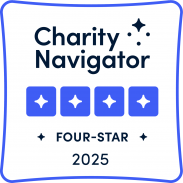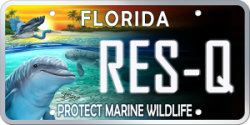Media Room: Press Release
FOR IMMEDIATE RELEASE
Media Contact: Mary Stella, Director of Media & Marketing
305-289-1121, ext. 254
Email: media@dolphins.org
For Dolphins, "Talking Helps Teamwork
Grassy Key… Whether in the open oceans or in a marine mammal facility, dolphins are often seen teaming up for various activities. A new study from researchers at Dolphin Research Center (DRC) in the Florida Keys and the University of Bristol in the United Kingdom, shows that when dolphins communicate vocally with each other, they cooperate better. "Talking" helps their teamwork.
“We knew from our previous cooperation study that the dolphins could coordinate precisely, so now we wanted to look at how they did it,” said Dr. Kelly Jaakkola, Director of Research for Dolphin Research Center.
To explore this question, the researchers created a task where pairs of DRC bottlenose dolphins had to swim across a lagoon and press their own underwater buttons within one second of each other. To make things even more difficult, sometimes the dolphins were sent to their buttons at different times, and sometimes the buttons were positioned so the dolphins couldn’t see each other. Underwater microphones (hydrophones) recorded the dolphins’ communication during each trial. “If you and I wanted to do something at the same time, we would probably coordinate verbally - like ‘one, two, three, go’. The question here was whether the dolphins would also use vocal communication to coordinate,” Jaakkola added.
The results showed that communication mattered. The dolphin pairs accomplished their tasks with high rates of success, coordinating most precisely when they whistled to each other. The timing of their communication was also important, as shown by the fact that they were more likely to succeed if they pushed their buttons after the last whistle.
This study furthers understanding of the role that communication plays in facilitating cooperation in animal societies. Dr. Stephanie King from the University of Bristol noted that, “The data show that some dolphins can use vocal communication to actively coordinate their cooperative behavior.” In field studies conducted in Shark Bay, Australia, King and her colleagues observe that, “Bottlenose dolphins cooperate extensively in the wild. Experimental studies like this one provide key insight into how they do it.”
The study is published in Royal Society Open Science, 8, 202073, a research journal of The Royal Society, a Fellowship of the world’s most prominent scientists and the oldest scientific academy in continuous existence. It was supported by a grant from Jim and Marjorie Sanger to Dolphin Research Center; Dr. King was supported by The Branco Weiss Fellowship-Society in Science.
Read the full text of the study at: https://royalsocietypublishing.org/doi/10.1098/rsos.202073 View a video about the study at https://youtu.be/6aX9dHiPQI0
Founded in 1984, Dolphin Research Center is a nonprofit organization, and home to bottlenose dolphins and California sea lions. Located at 58901 (mile marker 59) Overseas Highway, Grassy Key, Florida, the center is open daily for the public to see narrated behavior sessions and educational presentations, and to participate in interactive programs. The center is funded by admission and program fees as well as by private donors and members. In addition to being one of the most highly respected education and research facilities in the world, DRC is an accredited member of the Alliance of Marine Mammal Parks and Aquariums and the International Marine Animal Trainers Association. For more information, visit www.dolphins.org.
Citation: King, S.L., Guarino, E., Donegan, K., McMullen, C., & Jaakkola, K. (2021) Evidence that bottlenose dolphins can communicate with vocal signals to solve a cooperative task. Royal Society Open Science, 8, 202073.
###











